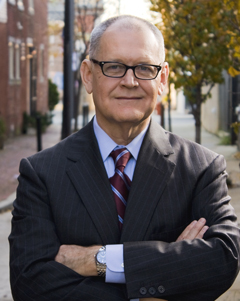Insurers' Cost of Doing Business Costs Us Dearly
 Since you likely don't pay as much attention to the behavior of insurance companies as I do, you probably are not aware that CIGNA, my last employer, was fined $600,000 by the North Carolina Department of Insurance earlier this week for, among other things, not charging its customers correctly.
Since you likely don't pay as much attention to the behavior of insurance companies as I do, you probably are not aware that CIGNA, my last employer, was fined $600,000 by the North Carolina Department of Insurance earlier this week for, among other things, not charging its customers correctly.
It was the second largest fine ever levied by the state's regulators, the largest being a $1.8 million fine in 2003 against Blue Cross Blue Shield of North Carolina for underpaying claims for emergency care. The news about the CIGNA fine was picked up by a few media outlets in the state, but not many, and it got almost no press coverage outside of the state. In addition to the fine CIGNA has been ordered to pay, the company will have to shell out several hundred thousand dollars in refunds to North Carolina employers whom regulators say were charged too much over a three-year period.

 The
The  Is the health care reform law a good deal for Americans, or is it so badly flawed that Congress should repeal it? Now that the measure is one year old -- President Obama signed the Patient Protection and Affordable Care Act to law on March 23, 2010 -- I humbly suggest we attempt an unbiased assessment of what the law really means to us, and where we need to go from here.
Is the health care reform law a good deal for Americans, or is it so badly flawed that Congress should repeal it? Now that the measure is one year old -- President Obama signed the Patient Protection and Affordable Care Act to law on March 23, 2010 -- I humbly suggest we attempt an unbiased assessment of what the law really means to us, and where we need to go from here. A little-known bill making its way through Arizona's legislature would make it illegal for local governments to restrict the use of toy giveaways to promote fast-food, like McDonalds' Happy Meals. Fast-food companies are behind the measure, HB 2490, which was approved in Arizona's House Commerce Committee by a vote of 6-2. Now it is headed for a full vote in the House. The Arizona Restaurant Association, which lobbies for fast food interests, is backing the bill. San Francisco recently passed a measure restricing such toy giveaways, but the law doesn't ban "Happy Meals." Rather, it prevents restaurants from using toys to attract children to meals that have particularly low nutritional value and excessive amounts of fat or sugar. Arizona recently ranked among the top
A little-known bill making its way through Arizona's legislature would make it illegal for local governments to restrict the use of toy giveaways to promote fast-food, like McDonalds' Happy Meals. Fast-food companies are behind the measure, HB 2490, which was approved in Arizona's House Commerce Committee by a vote of 6-2. Now it is headed for a full vote in the House. The Arizona Restaurant Association, which lobbies for fast food interests, is backing the bill. San Francisco recently passed a measure restricing such toy giveaways, but the law doesn't ban "Happy Meals." Rather, it prevents restaurants from using toys to attract children to meals that have particularly low nutritional value and excessive amounts of fat or sugar. Arizona recently ranked among the top